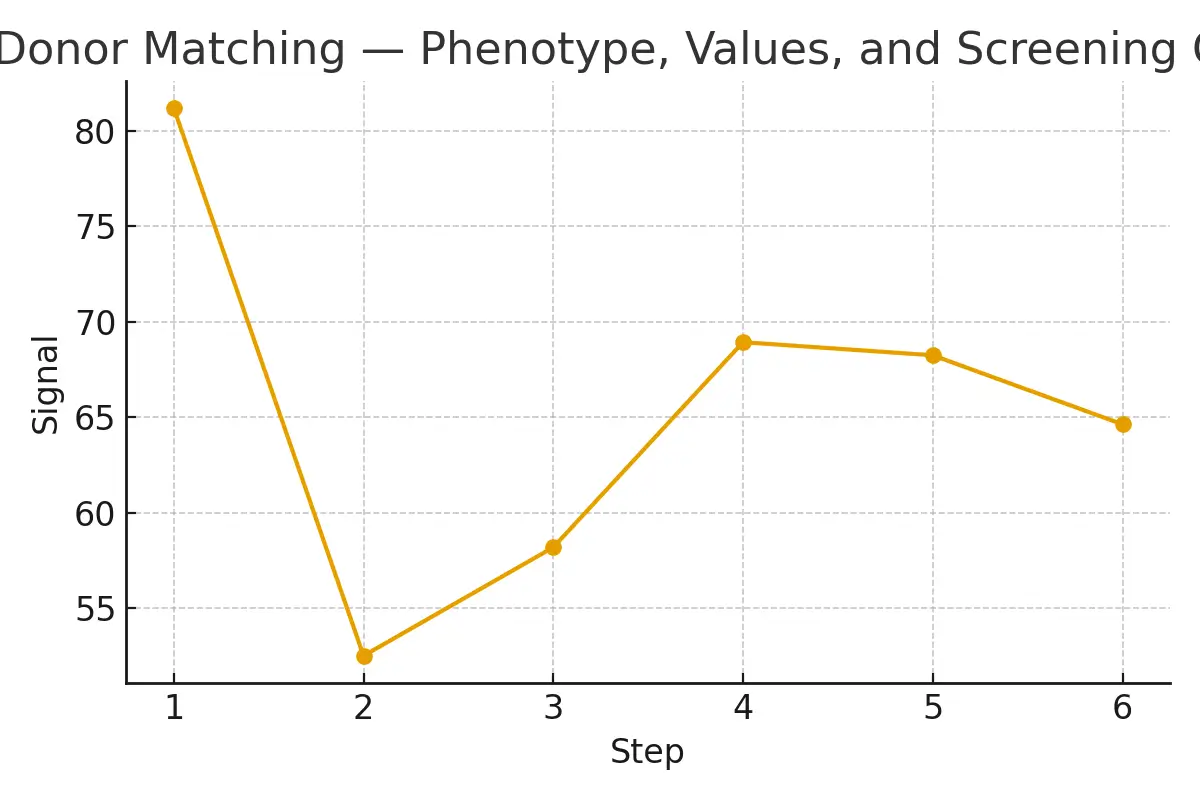
Egg donor matching is one of the most important decisions in LGBTQ+ family building. It influences outcomes, costs, and timelines more than almost any other step. This guide explains phenotype (appearance), values, and medical screening in plain English—so you can move forward with clarity and confidence.
What It Is
Egg donor matching is the process of selecting a donor whose genetics, health, and personal background align with your family-building goals. Choices about phenotype, screening standards, and shared values affect embryo quality, time to pregnancy, and long-term outcomes.
Who It Helps
This pathway is most useful when:
- Fertility factors such as age, ovarian reserve, or prior history require a donor
- Lab results or imaging suggest reduced response with self-eggs
- LGBTQ+ parents want to build biological connections through donor eggs
When circumstances suggest better alternatives (e.g., adoption, embryo donation, or surrogacy without donor eggs), your clinic can guide you.
Step-by-Step Approach
A structured donor selection process reduces stress and protects embryo quality:
- Define phenotype preferences and values (appearance, background, education, interests)
- Review donor screening results (genetics, health, infectious disease testing)
- Evaluate legal documentation and consent terms
- Align donor availability with clinic schedules
- Confirm pharmacy fulfillment, protocols, and timing checkpoints
Pros & Cons
Pros
- Wide donor options across banks and agencies
- Improved embryo quality and live-birth probability
- Ability to align donor traits with intended parents’ values
Cons
- Higher costs due to donor compensation and screening
- Legal and logistical complexity across multiple institutions
- Emotional challenges around genetic connections
Costs & Logistics
- Line Items: Donor compensation, agency fees, medical screening, legal documentation, fertility clinic procedures
- Insurance: Pre-authorizations often required, timelines may shift
- Cash Flow: Escrow accounts and structured payment schedules reduce financial risk
- Tracking: Checklists and cost breakdowns prevent unexpected bills
What Improves Outcomes
- Evidence-based steps that truly move the needle:
- Donor Screening Standards: Ensures safety, reduces risks, and supports budget predictability
- Genetic & Carrier Testing: Prevents transmission of inheritable conditions
- Protocol Timing: Syncs donor cycles and clinic calendars for optimal embryo development
- Luteal Support & Uterine Evaluation: Improves implantation and live-birth probability
- Mental Health Support: Reduces stress, strengthens decision-making, and supports long-term wellbeing
Case Study
One couple faced uncertainty choosing between multiple donors. By using defined screening thresholds, cost tracking, and clear communication between their clinic, donor agency, and legal team, they avoided delays and reduced stress. The result: a smooth egg retrieval, high-quality embryos, and a successful pregnancy.
Mistakes to Avoid
- Skipping thorough donor screening or rushing decisions
- Underestimating legal complexity of contracts and consents
- Ignoring clinic scheduling or pharmacy fulfillment windows
- Overlooking mental health support during decision-making
- Failing to track budgets and escrow releases carefully
FAQs
Q. How important is phenotype in donor matching?
Ans : Phenotype (appearance and traits) can matter emotionally for parents, but medical safety and genetic compatibility have a greater impact on outcomes.
Q. What medical screening do egg donors undergo?
Ans : Donors complete infectious disease testing, ovarian reserve evaluation, genetic carrier screening, and psychological assessments.
Q. How much does egg donor matching cost?
Ans : Total costs range from donor compensation and agency fees to legal contracts, labs, and clinic procedures. Transparent line-item tracking avoids financial surprises.
Q. Can I choose an anonymous or known egg donor?
Ans : Yes. Anonymous donors offer privacy, while known donors (friend, family, or directed donor) require additional legal and psychological steps.
Q. How does egg donor matching affect live-birth probability?
Ans : Donor eggs—especially from younger donors—significantly increase embryo quality and implantation success, often leading to higher cumulative live-birth rates compared to self-egg cycles.

Dr. Kulsoom Baloch
Dr. Kulsoom Baloch is a dedicated donor coordinator at Egg Donors, leveraging her extensive background in medicine and public health. She holds an MBBS from Ziauddin University, Pakistan, and an MPH from Hofstra University, New York. With three years of clinical experience at prominent hospitals in Karachi, Pakistan, Dr. Baloch has honed her skills in patient care and medical research.





